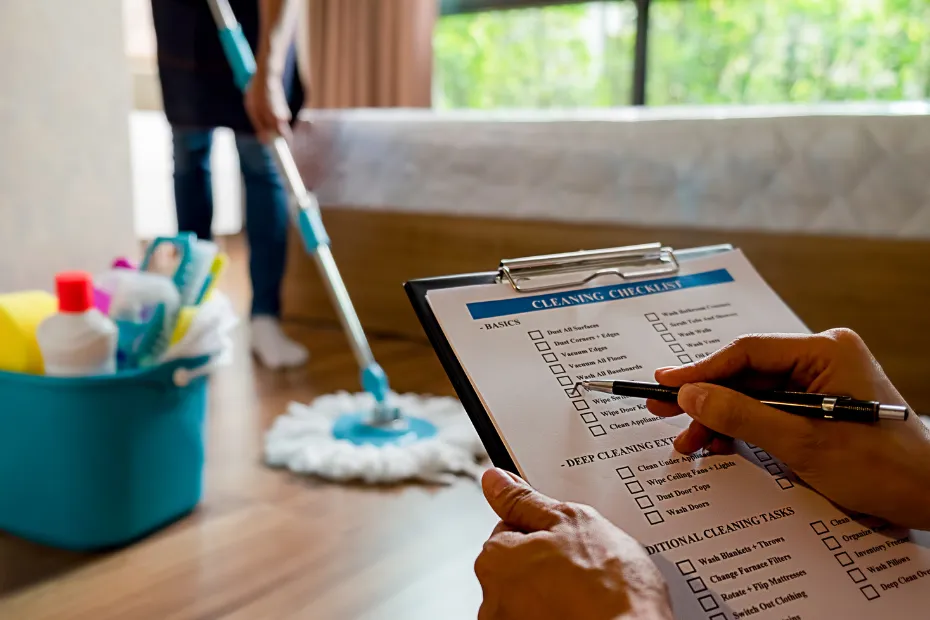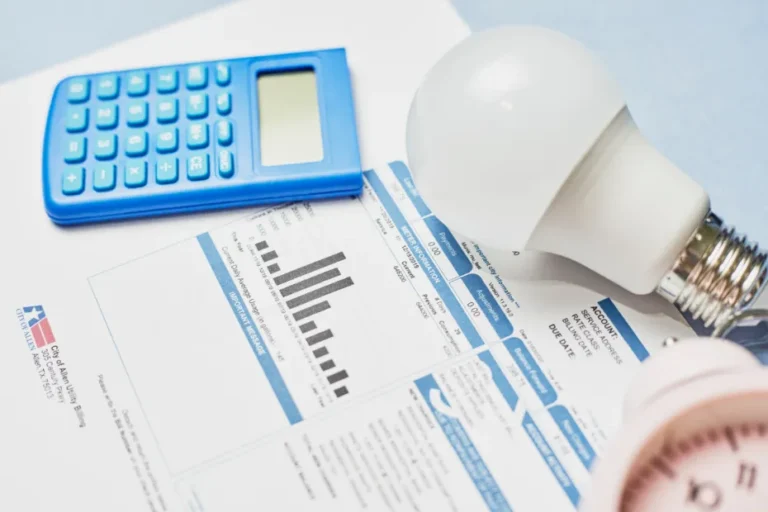How Much Can Landlord Charge for Cleaning in California?
Landlords in California can charge tenants for cleaning costs, including the cost of professional cleaning services, as long as it is clearly stated in the rental agreement and within reason. They must provide an itemized statement of deductions within 21 days of the tenant moving out.
The regulations regarding cleaning charges in California is crucial for both landlords and tenants to ensure a fair and transparent rental process.
It is important to clarify the specifics of cleaning charges in California, as both landlords and tenants need to be aware of their rights and obligations.

Landlord Cleaning Responsibilities In California

Overview Of Landlord Cleaning Responsibilities
In California, landlords have certain cleaning responsibilities that they need to fulfill before renting out their properties to tenants.
These responsibilities are outlined in the California Civil Code, specifically in sections 1940-1954.1. It is crucial for both landlords and tenants to have a clear understanding of these obligations to ensure a smooth rental experience.
Understanding The Importance Of Clear Rental Agreements
A key aspect of landlord cleaning responsibilities in California is the incorporation of these responsibilities into the rental agreements.
Clear and detailed rental agreements not only protect the interests of both parties but also set clear expectations regarding the cleaning duties.
When it comes to cleaning responsibilities, it is advisable for landlords to include a section in the rental agreement that clearly outlines the cleaning requirements and expectations.
Doing so, landlords can minimize conflicts and disputes related to cleaning issues during the tenancy.
Clear rental agreements should include:
- The specific cleaning tasks that the tenant is responsible for, such as sweeping, dusting, and mopping.
- The frequency at which these tasks need to be performed, such as weekly, bi-weekly, or monthly.
- Any restrictions or guidelines, such as the use of certain cleaning products or the need for professional cleaning services upon move-out.
- Consequences for non-compliance with the cleaning requirements, such as deductions from the security deposit or charges for professional cleaning services.
Ensuring Adherence To Landlord Cleaning Responsibilities
While landlords have the right to expect their tenants to fulfill their cleaning responsibilities, it is equally important for landlords to fulfill their own cleaning responsibilities. This includes providing a clean and habitable living space for tenants.
Some of the key landlord cleaning responsibilities in California include:
| Responsibility | Details |
|---|---|
| Providing a clean property | Landlords must ensure that the rental property is clean and free from health hazards at the beginning of the tenancy. |
| Maintaining common areas | Landlords are responsible for keeping common areas, such as hallways, staircases, and parking areas, clean and well-maintained. |
| Addressing pest infestations | If a rental unit becomes infested with pests, such as mice or cockroaches, the landlord is usually responsible for arranging pest control services. |
Related Post: Is Landlord Insurance The Same As Building Insurance?
Factors Affecting Landlord Cleaning Charges In California
When it comes to moving out of a rental property, tenants in California are often concerned about potential cleaning charges imposed by their landlords.
These charges can vary depending on several factors, including the extent of cleaning required, size of the property, and condition of the property.
These key factors can help tenants be prepared and potentially avoid any unexpected costs. Let’s delve into each factor in more detail:
Extent Of Cleaning Required
The extent of cleaning required is a major factor influencing the landlord’s charges. It refers to the level of cleaning needed to bring the property back to its original condition.
Rental agreements in California typically require tenants to return the property in a clean state, comparable to how it was when they first moved in.
However, normal wear and tear is expected and should not be charged for. It’s crucial for tenants to thoroughly clean the property before moving out to minimize any potential charges.
Size Of The Property
The size of the property also plays a role in determining the landlord cleaning charges. Larger properties naturally require more time and effort to clean thoroughly, resulting in higher costs.
Landlords may charge based on the square footage of the rental unit or impose a flat fee for cleaning. It’s important for tenants to be aware of this factor and plan accordingly.
Condition Of The Property
The condition of the property is another significant factor influencing cleaning charges. If the property is left in a dirty or unkempt state, landlords may need to hire professional cleaners to bring it back to a suitable condition for the next tenant.
Legal Limits On Landlord Cleaning Charges In California
Security deposit laws, determining reasonable cleaning charges, and being aware of prohibited cleaning charges are essential for landlords in California.
The state has specific regulations to protect tenants from excessive cleaning fees and unfair practices.
Understanding Security Deposit Laws
In California, security deposits are a common practice used to protect landlords against property damage or unpaid rent by tenants.
Landlords must comply with certain legal requirements, including the amount that can be charged for cleaning purposes.
According to Section 1950.5 of the California Civil Code, the total amount of the security deposit cannot exceed two months’ rent for unfurnished properties and three months’ rent for furnished properties.
Determining Reasonable Cleaning Charges
When it comes to determining reasonable cleaning charges, landlords in California can only deduct amounts that are necessary to restore the rental unit to its original condition, taking into account normal wear and tear.
It is crucial to have a clear understanding of what constitutes normal wear and tear, as anything beyond it may not be deducted from the security deposit.
Examples of normal wear and tear include faded paint, minor carpet stains, or small nail holes. However, excessive damage or neglect by the tenant can be grounds for additional charges.
Prohibited Cleaning Charges
It’s important for landlords to be aware of cleaning charges that are explicitly prohibited by California law. These include charges for routine cleaning, such as vacuuming, mopping, or dusting, as well as charges for normal wear and tear.
Landlords cannot deduct expenses for cleaning that are a regular part of maintaining the rental unit. Furthermore, landlords in California are not allowed to charge for the replacement of items that have reached the end of their useful life due to normal wear and tear.
| Prohibited Charges | Allowed Charges |
|---|---|
| General cleaning (routine tasks) | Repairing damage caused by tenant |
| Painting due to normal wear and tear | Removing excessive stains or marks on walls |
| Replacing worn-out carpet | Removing deep stains or pet damage in carpet |
Frequently Asked Questions
Faq 1: Can A Landlord Charge For Cleaning In California?
Yes, a landlord in California can charge for cleaning as long as it is stated in the lease agreement.
Faq 2: How Much Can A Landlord Charge For Cleaning In California?
The amount a landlord can charge for cleaning in California depends on the extent of the cleaning required and should be reasonable.
Faq 3: Is There A Legal Limit On Cleaning Fees In California?
No, there is no specific legal limit on cleaning fees in California. However, they should be proportional to the actual cleaning costs.
Faq 4: Can A Landlord Deduct Cleaning Fees From The Security Deposit?
Yes, a landlord can deduct reasonable cleaning fees from the security deposit if the tenant leaves the rental unit excessively dirty.
Conclusion
To summarize, understanding the regulations around cleaning charges for landlords in California can help both tenants and property owners navigate this aspect of rental agreements smoothly.
Being aware of the guidelines set by the state, landlords can ensure they are charging reasonable amounts for cleaning expenses while tenants can protect their rights.
It is always advisable to refer to the California Civil Code and consult with legal professionals for specific situations and advice.






